SUMMARY
This is AI generated summarization, which may have errors. For context, always refer to the full article.
![[OPINION] Shoulda, woulda, coulda: 4 ways the CHR report on climate change disappoints](https://www.rappler.com/tachyon/2022/05/chr-climate-change-may-25-2022.jpg)
I have read with anticipation the Philippine Commission on Human Rights Report on their National Inquiry on Climate Change (henceforth, the CHR Report) that was announced with much fanfare back when the world tried to negotiate the Paris Agreement back in 2015.
Seven years later and a pandemic, looking at the report as an experienced advocate of the environment with some experience in litigation, here are my thoughts on what the CHR Report should have tackled considering the length of time spent in gestating the findings and the recommendations. It is hoped that this will pave the way for the CHR to do a follow-up report consisting of more specific recommendations so that it will be useful for those who wish to use the courts in litigating issues relating to climate change in the Philippines.
Let it not be said that the Commission on Human Rights should not be commended for going down this path considering its challenges in these times, and truly the CHR Report would be a rich source of information on how the international human rights legal framework approach the issue of climate change. But, considering that this is the Philippine Commission on Human Rights, they would be contributing more to advancing the work of human rights and climate change in the country had it laid out key specific principles with relevance or applicability to the Philippine legal framework and jurisprudence, that will guide government agencies and litigants on how to make enforceable and tangible the plethora of human rights guidance and framework that have so far been honored in the breach by most government agencies, not only in the Philippines but in most UN member-countries.
For now, as an expectant reader, here are the ways the CHR Report is a letdown, in a way:
1. The report should have delved more into the intricacies of Philippine law and jurisprudence on how climate change is a good basis to give litigants standing using human rights principles and precedents.
Standing or what the courts say as locus standi, is a life and death issue for litigants. If they are seen not to possess it, the courts can just swat them away and not bother with them and throw their painstakingly prepared case into the wastebasket.
Considering the importance of this issue, which is the first threshold that will surely be encountered by climate litigants, the CHR Report should have taken pains to show how their findings would undoubtedly give standing to future litigants. Of course the elements of standing are already mentioned in the CHR Report, i.e. inter-generational equity, damage to the environment caused by climate change, etc., but these things just need to be explicitly stated in the Report so that Philippine courts should take note of these findings as clear findings of fact or part of what they should take judicial notice of.
Supreme Court decisions use transcendental significance to the people (Tatad v. Secretary of the DOE, G.R.No. 124360, Nov. 5, 1997) as one justification to set aside doubts on the legal standing of petitioners. Perhaps the CHR Report could have further reinforced this and laid out substantive legal grounds as to why human rights justifications provide more than enough transcendental significance to the people, which should without any doubt give legal standing to climate litigants in future court cases.
Since the CHR Report affirmed that climate change is real and identified the various ways this is happening, they could have explicitly mentioned in addition to this assertion that that fact makes climate change an issue that is of transcendental significance to the people, and that this item in the CHR Report would already be useful for climate litigants to use in their pleadings going forward.
The Resident Marine Mammals case (G.R. No. 180771, April 21, 2015) provided another route, that of allowing any Filipino citizen, as a steward of nature, to bring a suit to enforce our environmental laws. This, among other jurisprudence on standing, could have been expounded by the Report.
2. The report should have elaborated on how the writ of kalikasan would have made actionable the substantive human rights obligations of duty-bearers that should unlock litigation in all courts nationwide.
There is already a legal vehicle on which to piggyback any litigation involving the environment, and that’s the writ of kalikasan, part of a set of legal remedies issued by the Puno Supreme Court back in 2010 when they approved the Rules of Procedure on Environmental Cases (A.M. 09-6-8-SC).
The CHR Report could have further expanded on how violations involving the human right to life, health, or property provide added rationale for a writ of kalikasan case, considering that petitioners of the writ need to allege that the environmental damage suffered by inhabitants in two or more cities or provinces would prejudice the life, health, or property of these inhabitants.
If the CHR would have been more audacious, they could have tied up duty-bearers of human rights in government to also be liable for the writ of continuing mandamus, also part of the legal remedies in the Rules of Procedure on Environmental Cases, especially so when the Report not only states that human rights is a general duty of states but is a special duty in light of climate change.
3. The report’s finding on attribution is a good start. They could have gone further and tied it up with current Philippine jurisprudence on torts and damages.
The trickiest part that the CHR should have tackled, but did not, perhaps for lack of nerve or imagination, is to provide a roadmap for how their findings that carbon majors are liable for climate change can be sued in Philippine courts using the Philippines’ Spanish-era tort law and the challenges in jurisprudence and evidence that need to be hurdled therein.
The CHR Report asserted that as early as 1965, the Carbon Majors knew that their products, when used as intended, result in various harms to the climate system. With this conclusion, it would have been easier for climate litigants, had the CHR laid out how this knowledge shows some element of premeditation in the actions of Carbon Majors, indicating an element of willful negligence.
The Civil Code of the Philippines has just that provision, on quasi-delicts, which reads:
Article 2176. Whoever by act or omission causes damage to another, there being fault or negligence, is obliged to pay for the damage done. Such fault or negligence, if there is no pre-existing contractual relation between the parties, is called a quasi-delict and is governed by the provisions of this Chapter.
There’s more. That kind of negligence is also subject to criminal action, as what the succeeding provision of the Civil Code from that cited above will indicate:
Article 2177. Responsibility for fault or negligence under the preceding article is entirely separate and distinct from the civil liability arising from negligence under the Penal Code.
Coupled with Philippine Supreme Court tort doctrines on last clear chance (or, as I may say it, the one who has the last best opportunity to act but did not is the one most liable for the negligent act), or res ipsa loquitor (the thing is so obvious it speaks for itself), these provisions could have been put together by the CHR Report so that clearly, coupled with the principle of respondeat superior, the negligence of the employee is conclusively presumed to be the negligence of the employer.
4. The CHR Report should have also elaborated on how other human rights may be cumulatively applied in order that Philippine courts may be compelled to act on climate change concerns.
There are other human rights mentioned in the CHR report such as right to food security, right to water and sanitation, right to livelihood, right to adequate housing, right to preservation of culture, right to self-determination and right to development.
The problem with these rights is that they are hortatory; they are just for speechifying but not for action subject to mandamus. Given the spate of climate litigation across the globe, the CHR Report would have done a great service had it outlined the many legal theories for how courts can easily act on climate change litigation arising from the express duty tied up with these broad set of human rights.
In response to all these points, the CHR Commissioners would surely say, but these are items that are up to the litigants to take up. Yes, that is a fair point, but it would have been easier had the CHR already wrote this up in their report, and given that CHR findings would then have to be given judicial notice by Philippine courts, then it would be easier for litigants to cite those legal and jurisprudential findings in the CHR Report to further bolster their arguments in their climate litigation efforts in the Philippines.
These suggestions are made in earnest, perhaps to guide the next set of CHR Commissioners that will soon be appointed by presumptive president BBM as a follow-up report, considering that the report already laid down why climate change is an important issue for the courts to consider.
There could be a silver lining here, since human rights under Martial Law might be given somewhat less importance with the new dispensation. Well, BBM needs to show his environmental credentials given that he was quite mum about it during the campaign. Appointing CHR Commissioners who will put teeth into this CHR Report is one way he can show not only to the 31 million Filipinos who voted for him but also the 14 million plus who did not, that he cares about how the country will bangon muli (rise again), and this is one of the ways he may absolve himself from the past sins of his family and prepare Filipinos for a future that is climate-changed. – Rappler.com
Elpidio Peria used to be a member of the Philippine delegation to the UNFCCC negotiations from 2011 to 2016. He is a practicing lawyer based in General Santos City, advising government agencies, NGOs, and IGOs on various environmental issues and other concerns. His Writ of Kalikasan win-loss record before the Supreme Court is 1 win-1 loss.
Add a comment
How does this make you feel?
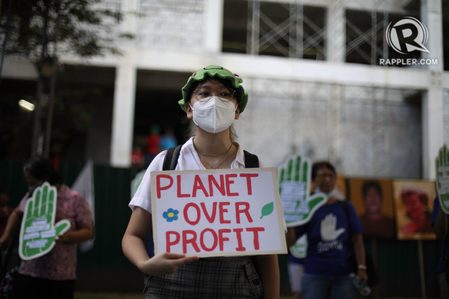
![[OPINION] The CHR Report: A climate justice victory](https://www.rappler.com/tachyon/2022/05/tl-chr-climate.jpg?fit=449%2C449)


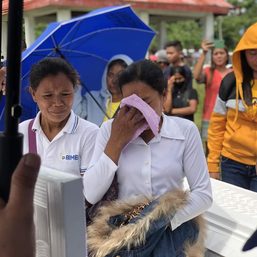
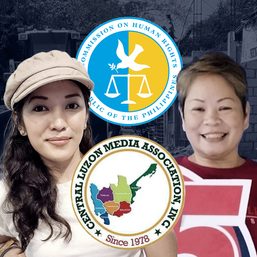
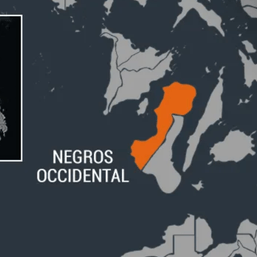
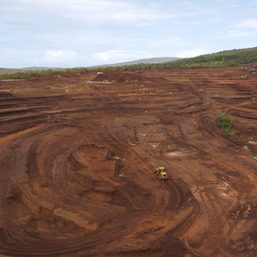
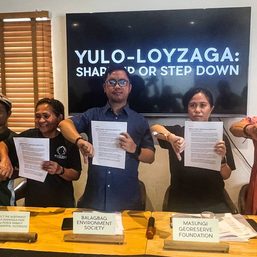

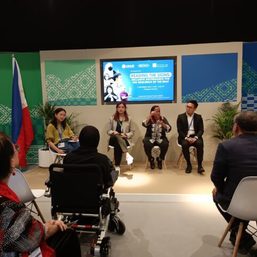

There are no comments yet. Add your comment to start the conversation.